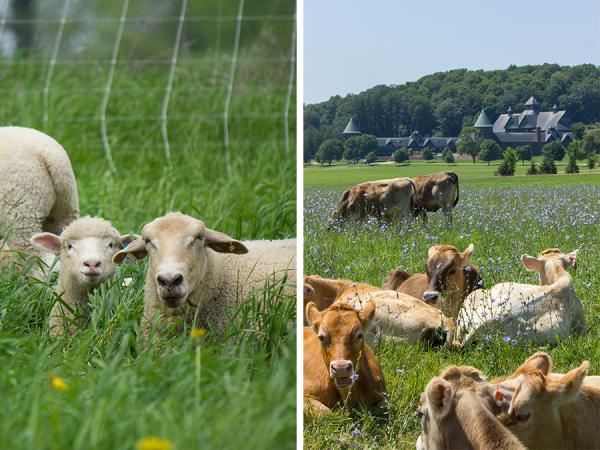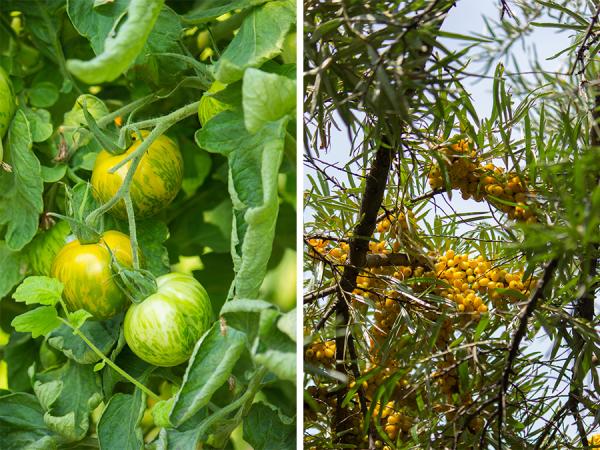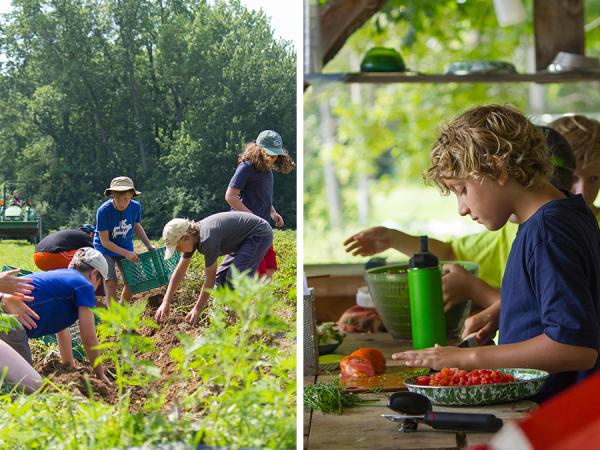Farming Update – August 2017
We caught up with the farmers who care for the Farms' land, animals, and produce – here's what's happening on campus in early August:
Pastures
Sam Dixon and his team have been making the best of the weather that they’ve been given — the wet May and June months led to soggy fields and pastures. They put up a lot of good feed in May, before things got really wet, and have been getting back on schedule with cuttings now that the weather is drier.
With all of that rain, the pastures have just kept growing and growing! The livestock are happily grazing on plentiful thick grass, although the cooler temperatures and lack of sun have lowered nutrient quality, and sugar and protein levels of the grass.
To date, the farmers have baled over 3,000 big round bales of hay. That number will grow this week as they bale “third cut” fields (those that have been cut three times this season). The third cut is good for feed, as it’s still young grass that is nutrient-dense for the Brown Swiss herd.
The team will also shortly be cutting the fields that provide hay for bedding. These are fields that support grassland birds, so they haven’t been mowed since late spring. This has given the baby birds time to fledge, but it also depletes much of the nutrients in the grasses, so the cut won’t make for good feed.
Market Garden
August is a busy time for Vermont farmers, and the organic Market Garden is brimming with tomatoes! Josh and the Garden Crew have recently finished picking most of the berries, the garlic has been pulled and is curing, and the sweet corn is high enough to pick. Final plantings (lettuces and spinach) will be completed in the next few weeks: while there is still plenty of harvesting to do, the last planting marks the home stretch of the growing season.
Campers have been helpful in the gardens – they’ve been picking all sorts of berries (seaberries, blueberries, mulberries, currants, and more), and harvesting potatoes. Some of what the campers harvest goes to use in the Inn and Farm Cart, but some is also used in their own cooking in the outdoor kitchen situated in the heart of the garden operations. Gleaning crews have also come through, harvesting extra cucumbers and greens for the Vermont Food Bank and the Shelburne Food Shelf.
On the horizon, onions will be picked and cured, melons will become ripe, and the corn that needs a longer growing season to dry on the stalk (popcorn and blue corn) will also be harvested. Josh is determining which cover crops will be used on which fields to keep the soil quality high for subsequent planting.


